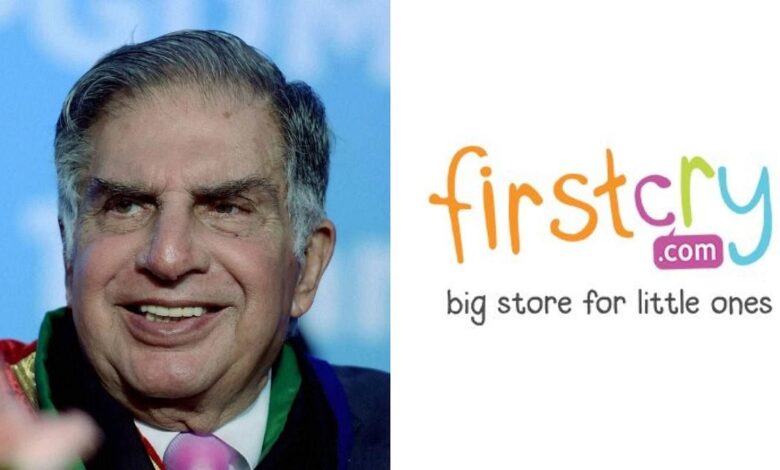Ratan Tata, the Chairman Emeritus of Tata Sons, is set to divest all of his 77,900 shares in the forthcoming Initial Public Offering (IPO) of the childcare products startup, FirstCry, scheduled for 2024. Celebrating his 86th birthday today, Ratan Tata had initially acquired a 0. 02% stake in Brainbees Solution, the company operating under the FirstCry brand, in 2016, at an average cost of Rs 84.
72 per share. According to FirstCry’s draft red herring prospectus (DRHP) submitted to the Securities and Exchange Board of India (SEBI), Tata’s total investment in the company amounts to approximately Rs 66 lakh. The veteran industrialist, known for leading the Tata Group for many years, has transitioned into an angel investor, supporting various startups such as Lenskart, Paytm, Ola Electric Mobility, and Upstox.
While the exact size of the FirstCry IPO remains undisclosed, it involves a fresh issue of shares valued at up to Rs 1,816 crore , with the offer for sale (OFS) component including the sale of up to 54. 4 million shares by existing investors like SoftBank, Mahindra & Mahindra (M&M), and US private equity fund TPG. SoftBank’s SVG Frog intends to sell 2.
03 crore shares, and M&M plans to offload up to 28. 06 lakh shares in the IPO. Other selling stakeholders comprise PI Opportunities Fund, TPG, NewQuest Asia, Apricot Investments, Valiant Mauritius Partners, TIMF Holdings, Think India Opportunities Master Fund, and Schroders Capital Private Equity Asia.
SoftBank presently holds the largest stake in FirstCry at 25. 5%, followed by M&M with a 10. 98% stake.
In the fiscal year 2023, FirstCry reported a consolidated net loss of Rs 486. 05 crore, a significant increase from the previous year, while its consolidated revenue more than doubled to Rs 5,632. 53 crore.
SoftBank had invested $400 million in FirstCry with an enterprise valuation of $900 million. As of June 30, 2023, Brainbees owned a total of 936 modern stores, including 321 company-owned and operated stores. Over the next three fiscal years, the company plans to establish 336 new stores under the BabyHug brand, covering approximately 0.
59 million square feet. Additionally, it aims to add 147 stores, including about 0. 51 million square feet, under the FirstCry brand and other home brands.
Why are stakeholders divesting their shares before the IPO? The decision by stakeholders, including SoftBank and Mahindra & Mahindra (M&M), to divest their shares in FirstCry ahead of its IPO prompts a closer examination of the underlying motivations. The critical perspective suggests concerns about the financial health and future potential of FirstCry, which has experienced a widening consolidated net loss and a significant increase in consolidated revenue in the fiscal year 2023. FirstCry’s consolidated net loss of Rs 486.
05 crore in FY23, compared to Rs 78. 68 crore in the preceding fiscal year, raises eyebrows, indicating operational challenges and financial instability. The substantial increase in consolidated revenue to Rs 5,632.
53 crore may be perceived as a positive aspect, but the widening loss may overshadow this growth, leading stakeholders to reevaluate their investment. SoftBank , as the largest shareholder with a 25. 5% stake, had initially invested $400 million in FirstCry at an enterprise valuation of $900 million.
The subsequent sale of SoftBank’s shares worth $310 million raises questions about its confidence in the company’s long-term prospects. The move could be interpreted as SoftBank hedging its position and realizing some returns amid uncertainties about FirstCry’s ability to achieve profitability. Likewise, M&M, holding a 10.
98% stake, also plans to sell a portion of its shares in the IPO. The decision by multiple stakeholders to offload shares might be driven by concerns over the sustainability of FirstCry’s business model and its ability to turn profitable in the foreseeable future. Additionally, the sector dynamics and competition in the childcare products market may influence these decisions.
With other emerging players and potential disruptors in the industry, stakeholders could be reassessing their positions to mitigate risks associated with a loss-making venture. The company’s future plans, including the establishment of new stores under the BabyHug and FirstCry brands, might not be sufficient to offset the apprehensions surrounding its financial performance. The divestment of shares by major investors raises questions about the overall outlook for FirstCry and spotlights the importance of a thorough due diligence process for potential investors in the IPO.
Stakeholders seem to be prioritizing risk management and liquidity , opting to sell their stakes in a company perceived as a loss-making venture with uncertain prospects in the competitive market. The Last Bit, the impending IPO of FirstCry raises pertinent questions about the company’s future trajectory and the motivations of its key stakeholders. The decision by major investors, such as SoftBank and M&M, to divest shares ahead of the IPO perhaps is indicative of concerns over the company’s financial performance and its ability to navigate the competitive market.
The widening net loss, despite substantial revenue growth, appears to be a critical factor influencing these strategic moves. As the market eagerly awaits the IPO, the choices made by these stakeholders offer a nuanced perspective on risk management, liquidity considerations, and the evolving sector of the childcare products market. The unfolding scenario of FirstCry can be viewed as a vigilance in an industry where investor confidence is delicately balanced between growth potential and fiscal responsibility.
.
From: inventiva
URL: https://www.inventiva.co.in/trends/ratan-tata-to-sell-all-his-77900-shares-in-firstcry-ipo-why-are-stakeholders-selling-their-shares/
